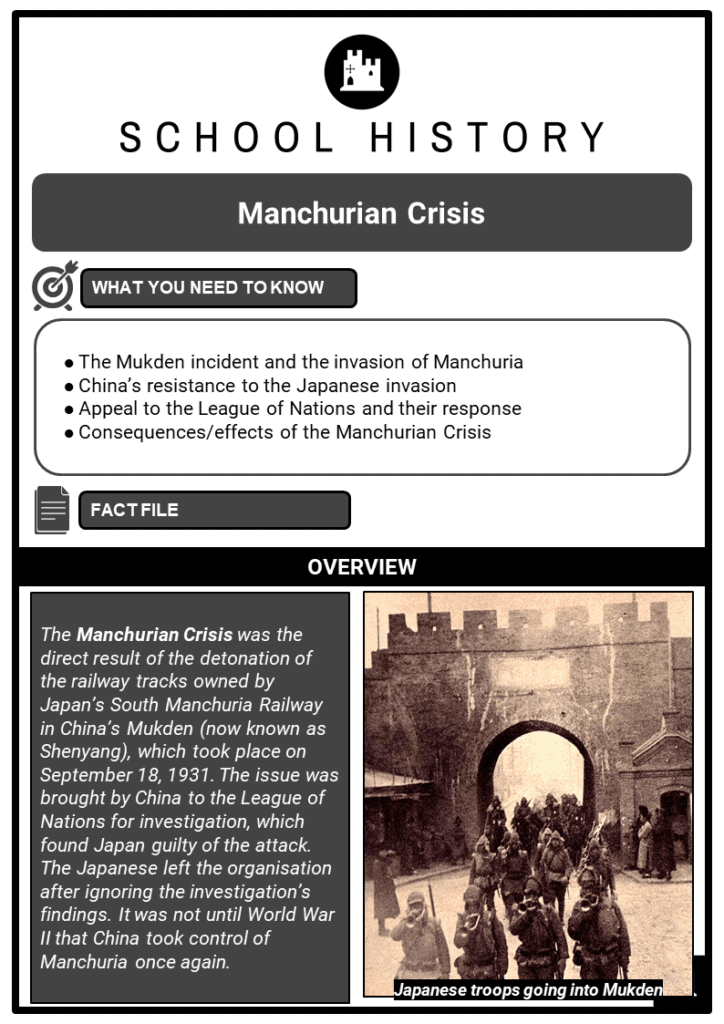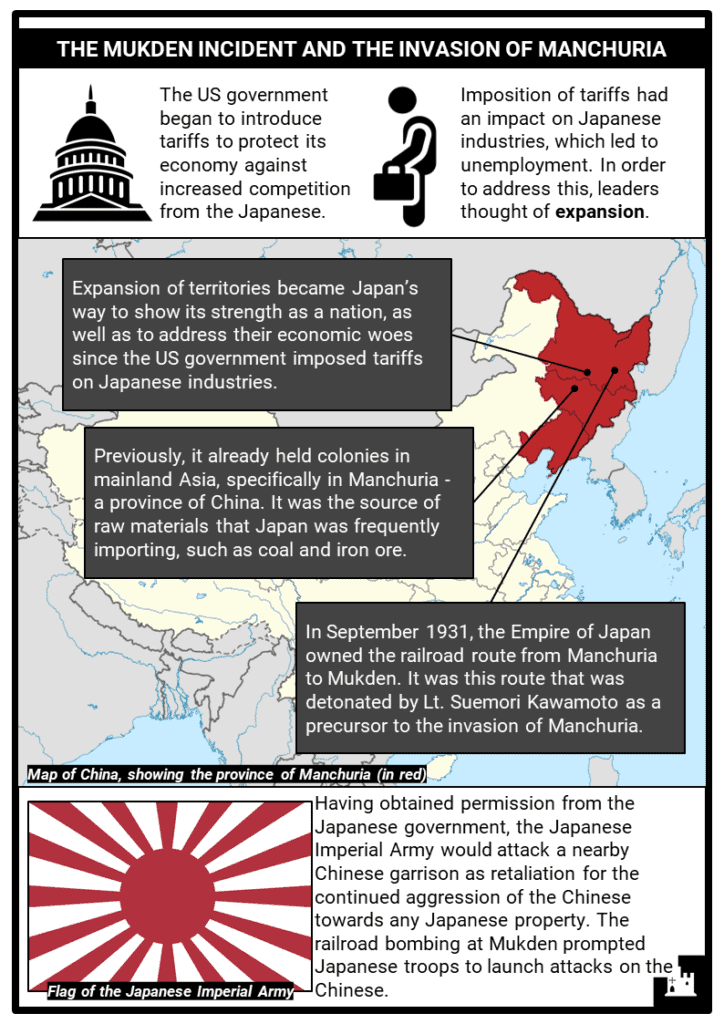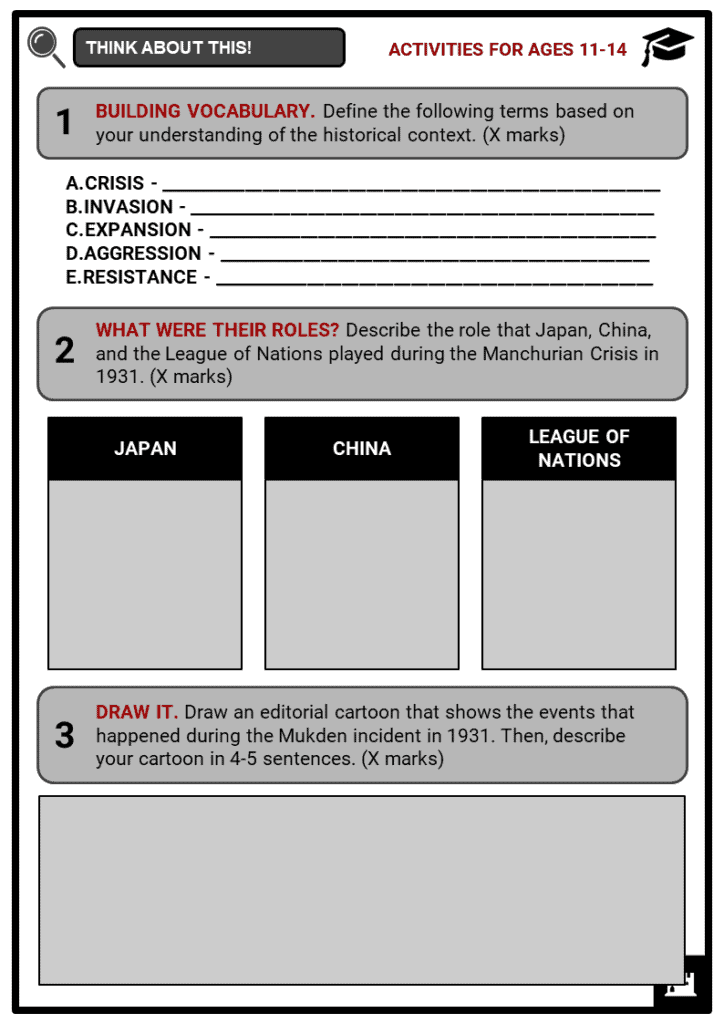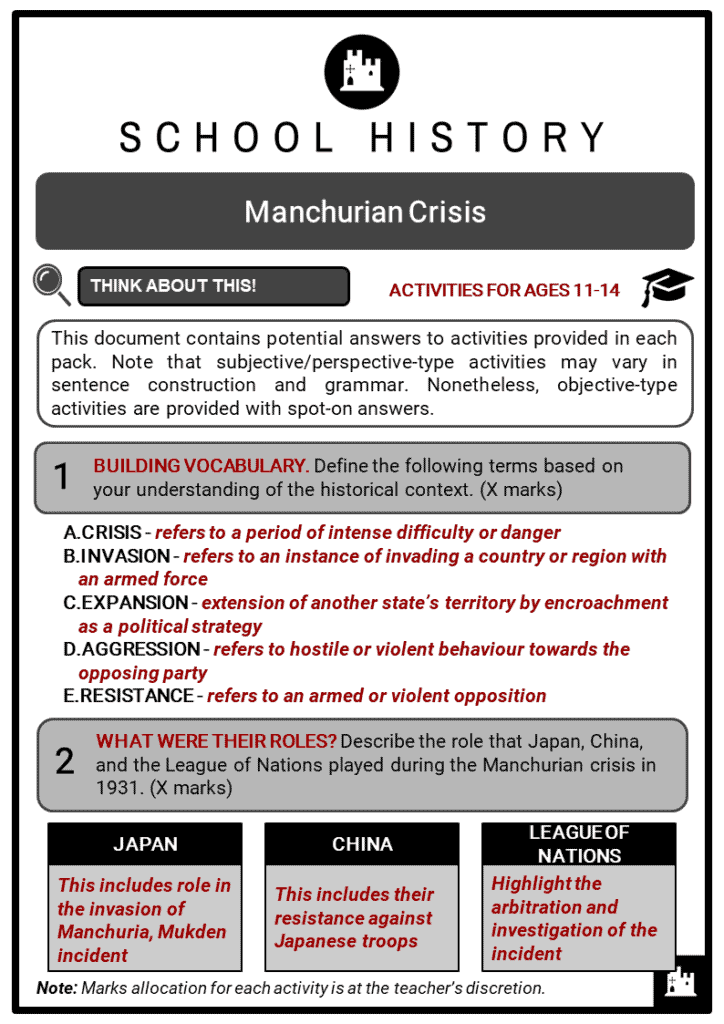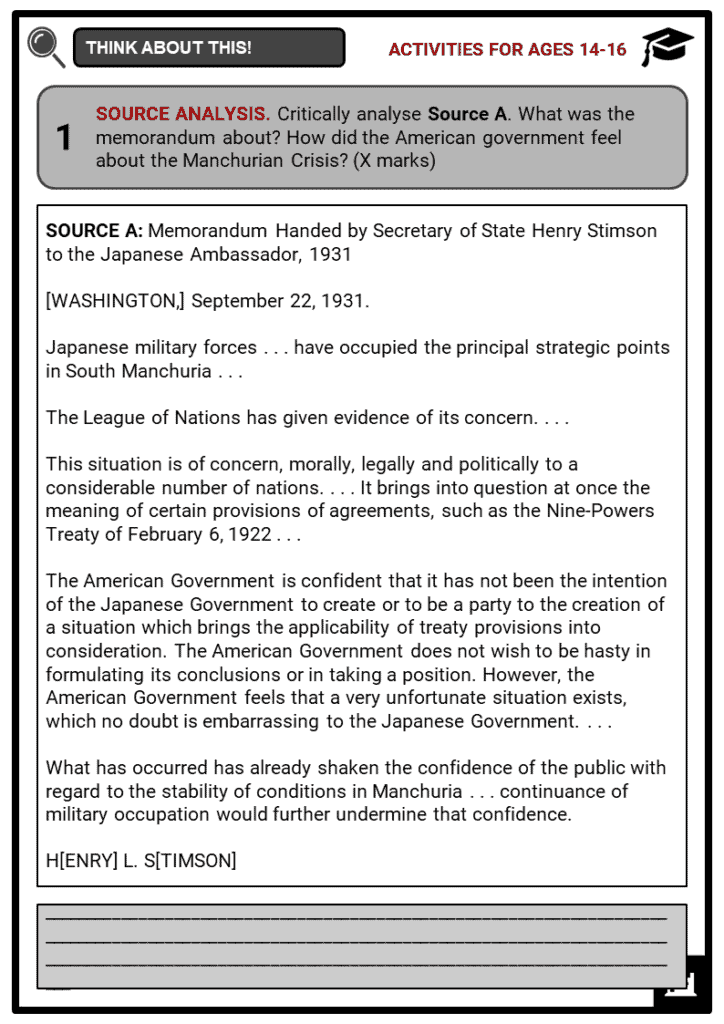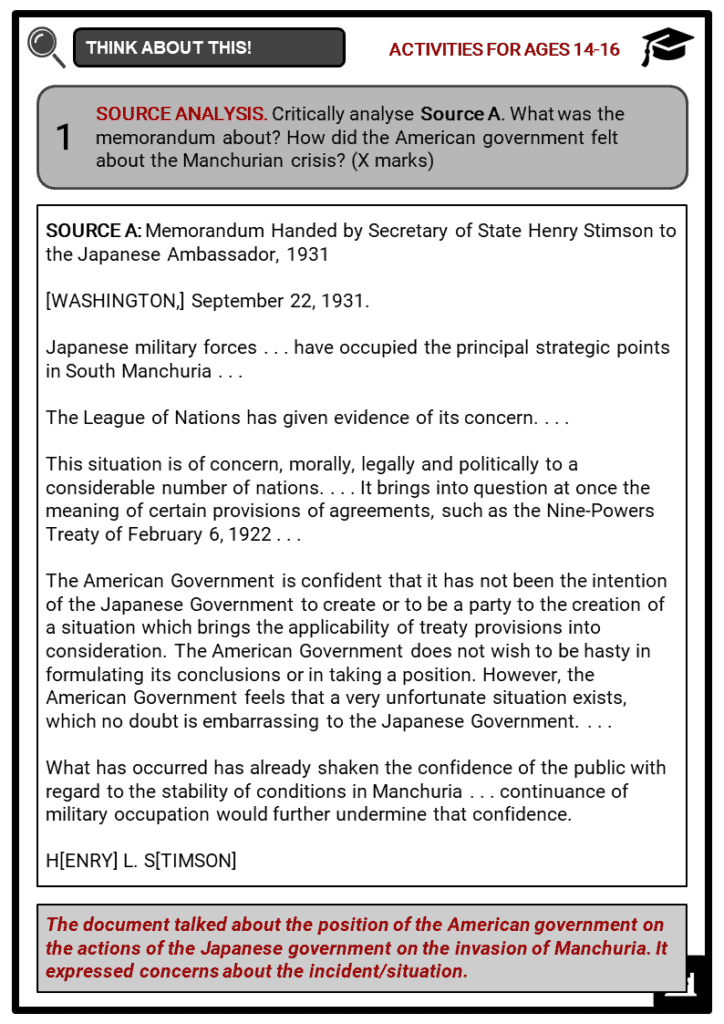Download Manchurian Crisis Worksheets
Do you want to save dozens of hours in time? Get your evenings and weekends back? Be able to teach Manchurian Crisis to your students?
Our worksheet bundle includes a fact file and printable worksheets and student activities. Perfect for both the classroom and homeschooling!
Table of Contents
Add a header to begin generating the table of contents
Summary
- The Mukden incident and the invasion of Manchuria
- China’s resistance to the Japanese invasion
- Appeal to the League of Nations and their response
- Consequences/effects of the Manchurian Crisis
Key Facts And Information
Overview
- The Manchurian Crisis was the direct result of the detonation of the railway tracks owned by Japan’s South Manchuria Railway in China’s Mukden (now known as Shenyang), which took place on September 18, 1931. The issue was brought by China to the League of Nations for investigation, which found Japan guilty of the attack. The Japanese left the organisation after ignoring the investigation’s findings. It was not until World War II that China took control of Manchuria once again.
The Mukden Incident And The Invasion Of Manchuria
- The US government began to introduce tariffs to protect its economy against increased competition from the Japanese.
- Imposition of tariffs had an impact on Japanese industries, which led to unemployment. In order to address this, leaders thought of expansion.
- Expansion of territories became Japan’s way to show its strength as a nation, as well as to address their economic woes since the US government imposed tariffs on Japanese industries.
- Previously, it already held colonies in mainland Asia, specifically in Manchuria - a province of China. It was the source of raw materials that Japan was frequently importing, such as coal and iron ore.
- In September 1931, the Empire of Japan owned the railroad route from Manchuria to Mukden. It was this route that was detonated by Lt. Suemori Kawamoto as a precursor to the invasion of Manchuria.
- Having obtained permission from the Japanese government, the Japanese Imperial Army would attack a nearby Chinese garrison as retaliation for the continued aggression of the Chinese towards any Japanese property. The railroad bombing at Mukden prompted Japanese troops to launch attacks on the Chinese.
- It was believed that the Japanese officers orchestrated the Mukden incident in order to justify their invasion and an initial step to their territorial expansion. As noted in the previous slides, Japan had to prove its supremacy as a nation while addressing their economic woes. Right after seizing Mukden, the Japanese army went to other towns and cities to occupy them. They were able to seize control of Manchuria within five months.
China’s Resistance To The Japanese Invasion
- The Nenjiang Harge Bridge repair became a precursor to the impending resistance of China against the Japanese forces. A repair party was sent in early November, 1931 under the protection of the Japanese troops. Loyalists to the provincial governor of Heilongjiang, General Ma Zhanshan were involved in a fight against Japanese army troops after the former did not obey the non-resistance policy of the Kuomintang government to the Japanese invasion. The general became one of China’s national heroes for his efforts to resist against the Japanese even if he did not claim victory.
- The heroism of General Zhanshan became an inspiration for people to enlist in the Anti-Japanese Volunteer Armies since this news became known both in the Chinese and international media.
- On November 15th, General Ma refused to surrender provincial capital Tsitsihar despite a Japanese ultimatum and losing more than 400 men. But two days later, 3,500 Japanese troops attacked the area and forced General Ma out of the city.
Appeal To The League Of Nations And Their Response
- China went to appeal to the League of Nations to help them regain full control of Manchuria. In October of 1931, a resolution was passed by the League ordering the Japanese forces to withdraw, and forming a commission to investigate the situation. Japan opposed the League’s resolution and wanted to directly negotiate with the Chinese government. However, negotiations between both parties failed and the takeover of Manchuria continued by attacking Shanghai.
- Process Of Arbitration
- An arbitration was led by the League of Nations to listen to the complaints from both China and Japan regarding their positions on the situation.
- The League’s council deliberated on the issue even without the epresentatives
- from China and Japan before arriving at a resolution.
- A resolution was passed by the League of Nations ordering the Japanese forces to withdraw from Manchuria. It created a commission to investigate this.
- Despite the resolution from the League of Nations, Japan did not honour it and proceeded with its expansion efforts in Manchuria. The commission, headed by Victor Bulwer-Lytton, still continued the investigation of the Mukden incident. They went to the railway where the incident happened. Over a year after the attack, in October 1932, the Lytton-led commission came up with a report which detailed that the invasion by the Japanese forces was illegitimate, thus they needed to withdraw from Manchuria, and ultimately, from the League.
Consequences/Effects Of The Manchurian Crisis
- The League of Nations, in a special assembly, voted on the report from the Lytton Commission in February 1933. The delegates from Japan walked out from the League when the assembly voted for the withdrawal of their troops from Manchuria. This move helped create an international isolation on the part of Japan.
- The incident was heavily reported by the Western media with narratives on bombing civilians or firing upon survivors of the incident.
- Reports from the Western media created a deep-seated feeling of dislike towards Japan, which also led to its isolation from the international community. China’s absolute sovereignty over Manchuria was put into question.
- The crisis that happened in Manchuria had an impact on the influence and strength of the League of Nations. It proved to be powerless since strong nations were able to pursue aggressive acts against other nations without suffering any severe repercussions (i.e. in the case of Japan).

